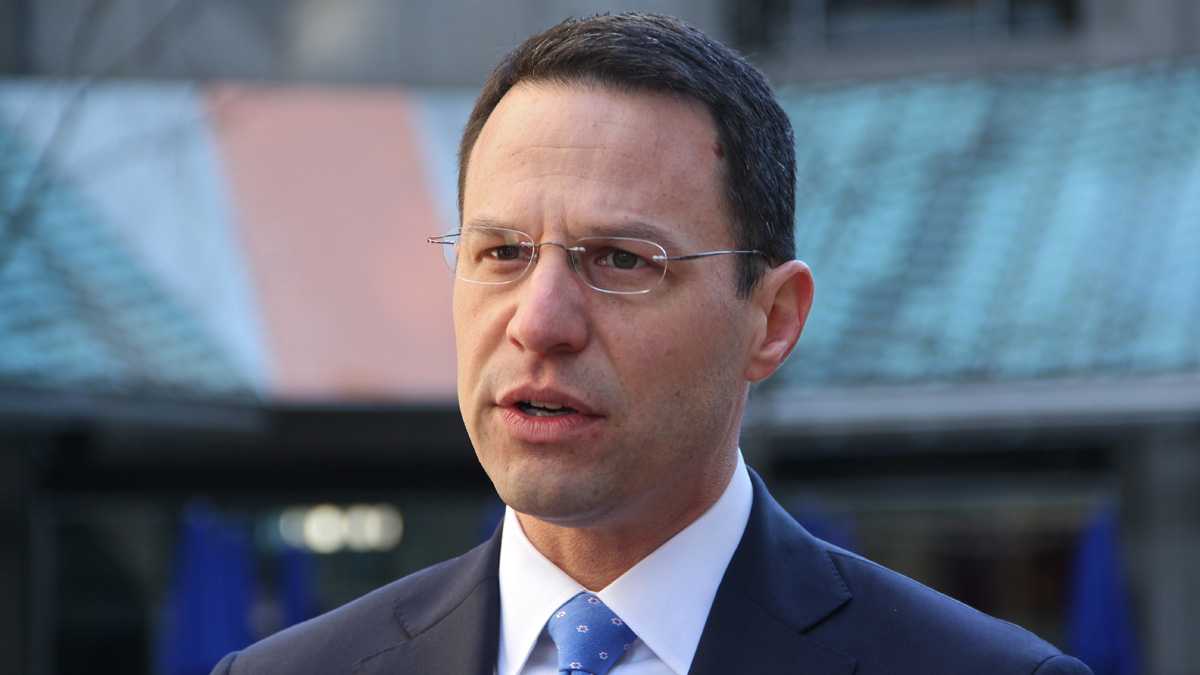Pennsylvania, other Northeast states sue EPA over Midwest pollution
Northeast state attorneys general say Midwest states should be subject to the same tough ozone standards.

Pennsylvania Attorney General Josh Shapiro (Emma Lee/WHYY, file)
Pennsylvania and Delaware are among states in the Northeast that have sued the Environmental Protection Agency again over ozone pollution.
The eight states are suing the EPA for not requiring states in the Midwest and parts of the South to follow tougher pollution standards. New Jersey is not part of this lawsuit.
Polluted air from the other states is blowing into the Northeast, said Pennsylvania Attorney General Josh Shapiro.
“Pennsylvania is what’s known as a downwind state, so our citizens are forced to breathe unhealthy air caused by smog and other emissions from upwind states,” he said. “Nearest to us, those upwind states would be Ohio and West Virginia, two of our border states.”
The dispute began in 2013, when the Northeast states asked the EPA to make the Midwest and South join them in reducing smog pollution. Back then, Connecticut Gov. Dannel Malloy said his state was “serving as the tailpipe of America.”
The EPA denied that request this November, saying that existing programs would be more effective at fighting pollution than making the other states join the Northeast. The northeastern attorneys general disagreed and asked the U.S. Court of Appeals for the D.C. Circuit to review the decision.
Ozone is the main ingredient in smog. It occurs when pollutants from power plants, refineries, cars, and other emitters react chemically in the presence of sunlight. Breathing it can trigger chest pain, coughing, and throat irritation.
A 2016 report from researchers at New York University and the American Thoracic Society found that Philadelphia does not meet the EPA standards for ozone. Meeting the American Thoracic Society’s standards would mean 126 fewer city residents would die each year, it concluded.
Back in the summer, Pennsylvania, 14 other states, and the District of Columbia also sued the EPA over a delay in implementing new clean air standards, and the EPA reversed itself after a day.
An EPA representative said the agency will not comment on pending litigation.
WHYY is your source for fact-based, in-depth journalism and information. As a nonprofit organization, we rely on financial support from readers like you. Please give today.





